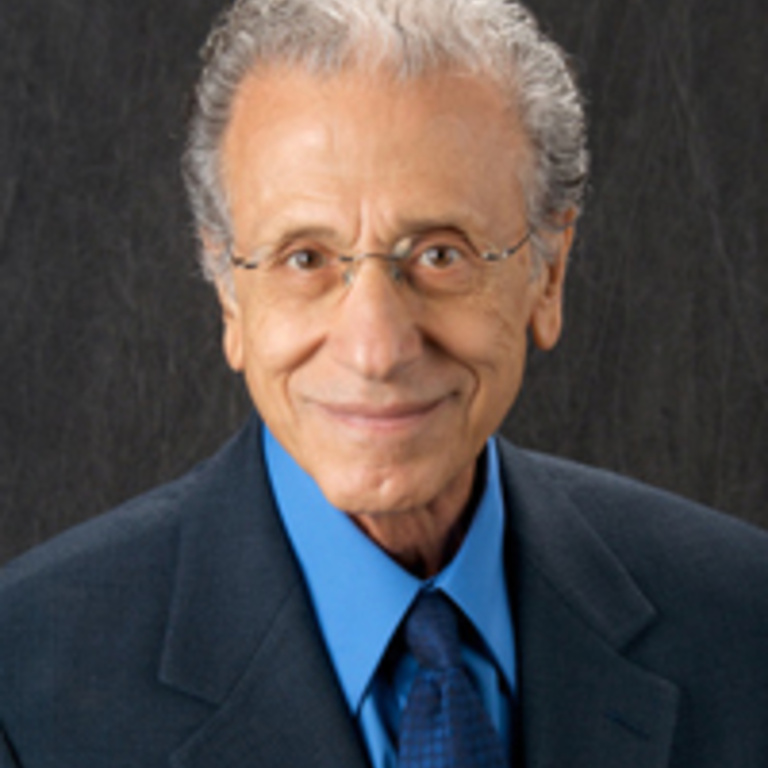Francois Abboud, MD
François M. Abboud, M.D. joined the faculty of the University of Iowa in 1960 and was appointed Director of the Division of Cardiovascular Diseases in 1970. Since 1974, he has been the Founding and sole Director of the University of Iowa Cardiovascular Research Center until 2012. Under his leadership, the Center gained international prominence by fostering several major interdisciplinary research programs and an Institutional Research Training Grant from the National Institutes of Health (NIH) which has graduated hundreds of cardiovascular physicians and basic scientists since 1974. To honor his legacy of over 5 decades in perpetuity, the Board of Regents of the University of Iowa approved the naming of the Center: The François M. Abboud Cardiovascular Research Center.
From 1976 to January 2002, he was Head of the Department of Internal Medicine and was awarded the Robert H. Williams Distinguished Chairman of Medicine Award by the Association of Professors of Medicine. During his chairmanship, the Department became among the most outstanding research oriented Departments of Medicine.
Since 1971, Abboud has been the principal investigator of an NIH-funded Program Project Grant (PPG), currently entitled, “Integrative Neurobiology of Cardiovascular Regulation”. The most recent 5-year renewal of this PPG began in July 2014. At the end of this award period in 2019 this PPG would most likely be the longest (48 years) funded research program under the same principal investigator in the National Heart Lung and Blood Institute. He has gained international recognition for his work on the effect of the brain on the cardiovascular system. His studies have focused on the neural control of the heart and circulation with aging, hypertension, heart failure and sleep apnea. He has elucidated the role of endothelial factors and ion channels in activating baroreceptor neurons. He discovered evolutionary conserved mechanosensitive molecules, which contribute to mechanoelectrical transduction of these neurons, and acid sensitive channels which contribute to chemoreceptor sensitivity. His current discovery of a proinflammatory modulation of the innate immune system by the autonomic neurotransmitters in genetic hypertension has enormous potential for further progress in the battle against cardiovascular disease.
His work has been recognized with numerous awards, including the ASPET Award for Experimental Therapeutics from the American Society of Pharmacology and Experimental Therapeutics, and the Dickinson W. Richards Memorial Award (Pulmonary Diseases), the George E. Brown Memorial Award (Circulation), and the Award of Merit, all of the American Heart Association. He received the Wiggers Award and Medal of the American Physiological Society, Cardiovascular Section, in 1988; the CIBA Award and Medal for Hypertension Research of the Council of High Blood Pressure Research of the American Heart Association in 1990; the Merck Sharp and Dohme International Award for Research in Hypertension in 1994; and the Gold Heart Award (1995) and the Research Achievement Award (1999) of the American Heart Association. He was the Carl Ludwig Distinguished Lecturer of the American Physiological Society and recipient of the American College of Physicians/ American Society of Internal Medicine Award for Outstanding Work in Science as Related to Medicine in the year 2000. In 2004, he received the Distinguished Scientist Award of the American College of Cardiology, in 2006 he received the Distinguished Research Award from the Association of American Medical Colleges, and in 2007 the Distinguished Scientist Award of the American Heart Association. He was selected for the prestigious Cannon Lecture and Award of the American Physiologic Society, received the Kober Medal of the Association of American Physicians in 2009 and the Ben Qurrah Award from the Arab American Medical Association, Houston Chapter, 2010.
Abboud is a member of the American Society for Clinical Investigation and has served as President of the Association of American Physicians, the American Heart Association, the Central Society for Clinical Research, the American Federation for Clinical Research, and the American Clinical and Climatological Association. He was Editor-in-Chief of Circulation Research from 1981 to 1986 and Co-Editor of the Handbook of Physiology: Peripheral Circulation and Organ Blood Flow of the American Physiological Society in 1983. He chaired the Heart and Lung Program Project Research Review Committee of the National Heart, Lung and Blood Institute of the NIH from 1978-1980 and was a member of the Advisory Council of the NHLBI. He was elected to the Institute of Medicine of the National Academy of Sciences in 1988 and received a Doctor of Science (Honoris Causa) from the University of Lyon, France in 1991. In 1992, he became a Master of the American College of Physicians and was presented with an honorary Doctor of Science degree from The Medical College of Wisconsin in 1994. He served as the first Editor-in-Chief of the Proceedings of the Association of American Physicians. In 1997, he was elected to the American Academy of Arts and Sciences and to its Midwest Regional Council in 2003.
